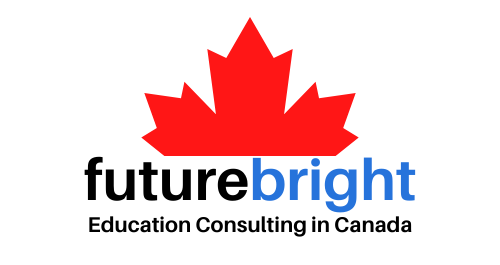It’s challenging to determine what’s a better choice for your child: big school or small school? Larger student population, or smaller student population?
At FutureBright Canada, we work with a variety of private and public schools in Canada – both private day schools and boarding schools – including Lakefield College, Trinity College, St. Andrew’s College, Branksome Hall, Bishop Strachan School, Pickering College, and more. Our goal is to bring a personalized, best-fit education experience in Canada to students aged 5-17 all over the world – so your child enjoys the bright future he or she deserves!
In this article, we will explore the pros and cons of big schools versus small schools and provide you with some tips on how to choose the right school for your child. As our specialty is grade school (K-12), this article covers both the topics of “big high schools vs. small high schools”, and “big elementary schools vs. small elementary schools”.
Student Populations of Private Day Schools and Boarding Schools in Toronto
| School | Student Population |
| Upper Canada College | 1,200 |
| Crescent School | 750 |
| Bishop Strachan School | 900 |
| Branksome Hall | 900 |
| Havergal College | 1,000 |
| St Clement’s School | 460 |
| Toronto French School | 1,300 |
| Greenwood College School | 400 |
| York School | 700 |
| Bayview Glen | 1,000 |
| Lakefield College | 365 |
| Trinity College | 500 |
| St Andrews College | 620 |
| Pickering College | 400 |
| Ridley College | 700 |
| Albert College | 300 |
| Ashbury College | 600 |
| Stanstead College | 200 |
Pros and Cons of Big Schools
Pros:
- Large schools typically provide a wide variety of classes and services to students.
- Large schools have the capacity to offer more specialized programs for disadvantaged students and students with special needs.
- A wide range of activities and peer groups are available in larger schools.
- Larger schools may have more opportunities for gifted education, Advanced Placement or International Baccalaureate coursework.
Cons:
- Larger schools may lack a sense of community.
- It may be harder to develop deep friendships in larger schools.
- Students may feel lost or anonymous in larger schools.
- Certain students may face discipline challenges if they’re put in larger schools.
Pros and Cons of Small Schools
Pros:
- Students are more likely to master curriculum in a smaller learning environment.
- Smaller class sizes allow for more individualized attention from teachers.
- There is generally more parent involvement and a feeling of belonging in small schools.
- Students are more likely to participate in school activities than those of large schools.
Cons:
- Small schools aren’t able to offer as wide a range of activities and a broad curriculum as larger schools.
- Small schools may not have as many resources as larger schools.
- There may be fewer opportunities for gifted education or Advanced Placement coursework in small schools.
What can we conclude from this?
Larger schools could be better for outgoing, ambitious students who like to hang out in bigger groups; or students pursuing AP or IB.
Smaller schools could be better for students who learn best in quiet. Those where silence & calm is the key to activate their zone of Genius. They’re also better for tighter-knit friendships and stronger bonds. Smaller, quieter schools could also be better fit for individualized learning.
These are just generalizations. In reality, one size does not fit all. It’s not black-and-white. The pros and cons are challenging to balance.
Everyone has a different personality, learning style, interests, and goals. Everyone’s combination of those traits is unique. The ideal school environment must cater to your little one’s specific needs for academic success.
While boarding school vs. private day school is one important decision, the size of the school could make an even bigger difference for your child’s education.
At FutureBright Canada, we understand this. The process of choosing a small school or big school needs not to be difficult. Our specialty is eliminating this challenge helping families find the best-fit education experience for their children.
It’s easy to kickstart the process. Fill out this form to kickstart the process and have a Zoom conversation with our Educational Consultant about the next steps.

Recent Comments